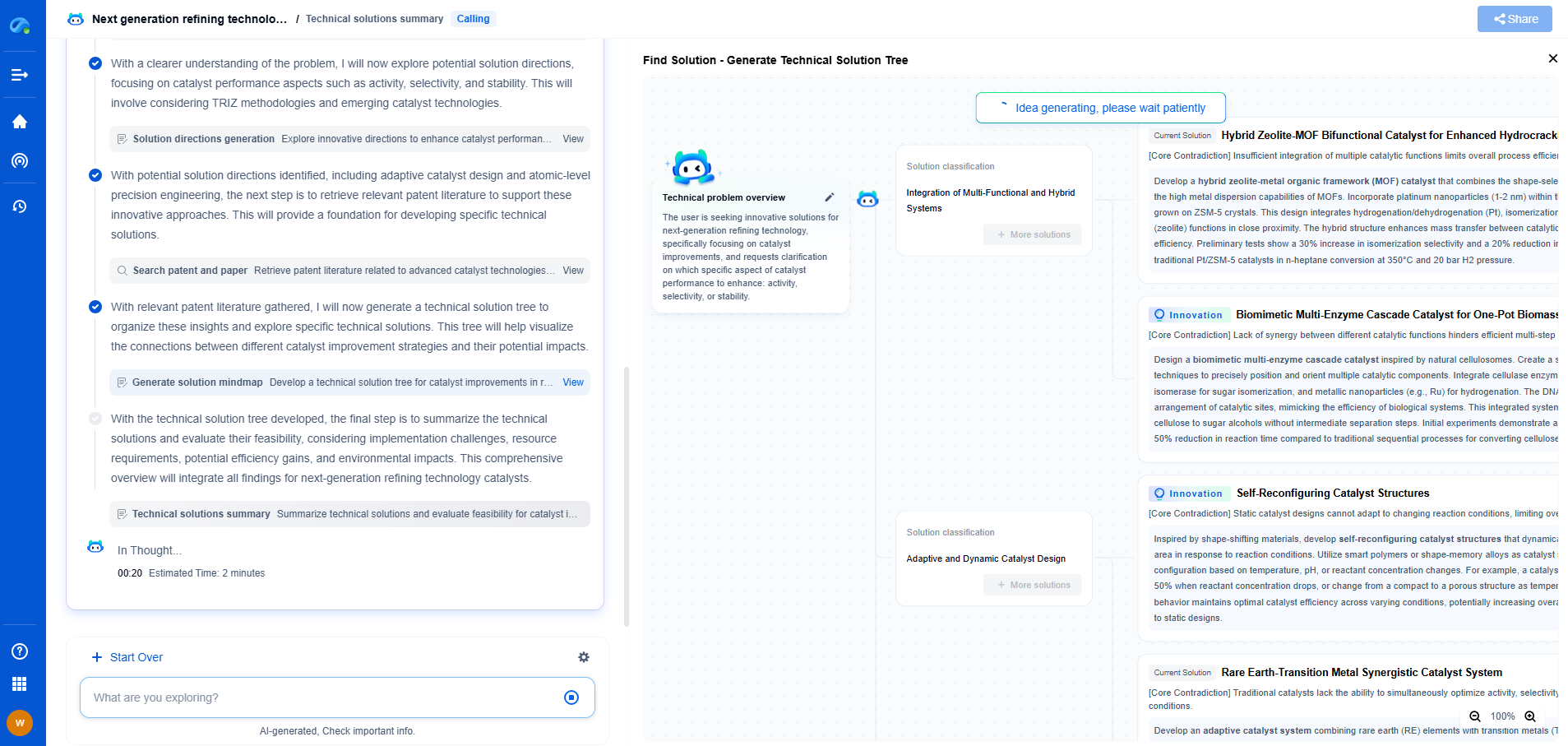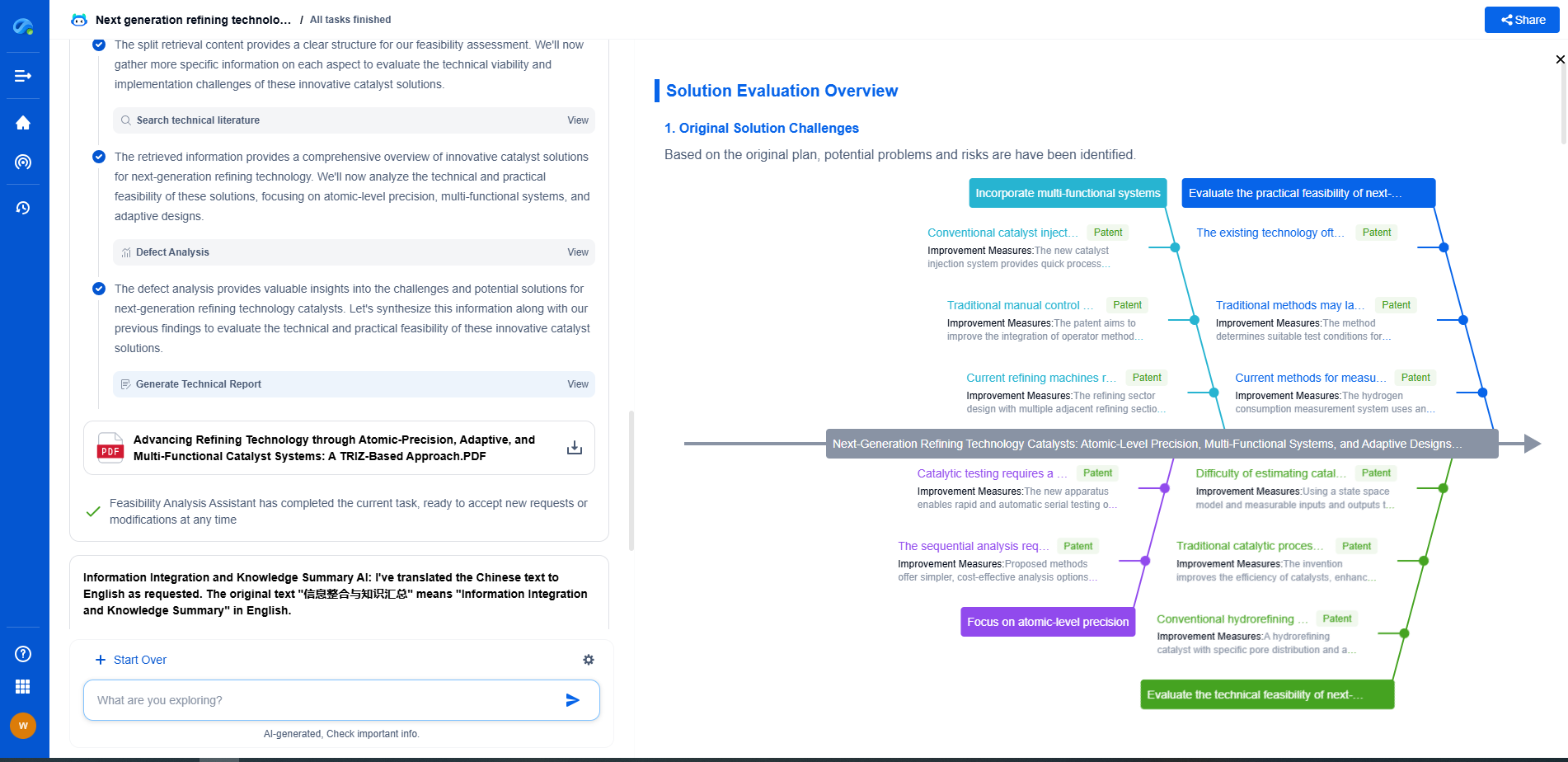DCS in Oil & Gas: How Distributed Control Ensures Safety
JUL 2, 2025 |
The oil and gas industry operates under high-stakes conditions where safety is paramount. Given the complex processes and hazardous materials involved, implementing effective control systems is crucial. Distributed Control Systems (DCS) play a vital role in ensuring safety, efficiency, and reliability in oil and gas operations. These systems are designed to manage and control various processes through a network of autonomous controllers, providing significant advantages in maintaining operational integrity.
The Role of DCS in Safety Management
In the oil and gas sector, safety is non-negotiable. DCS contributes to safety by offering real-time monitoring and control of the entire operational process. By decentralizing control tasks, these systems reduce the risk of single-point failures, ensuring that operations continue smoothly even if one part of the system experiences issues. This design enhances the resilience of the system, providing a robust safety net against potential hazards.
Real-Time Monitoring and Alerts
One of the primary safety features of DCS is its ability to provide real-time monitoring. The system continuously collects data from various sensors and control points throughout the facility. This constant surveillance allows operators to detect anomalies or deviations from standard operating conditions immediately. Should an irregularity arise, the DCS can trigger alarms and alerts, enabling swift intervention to address potential threats before they escalate into more significant problems.
Automation and Reduced Human Error
Human error is a common factor in industrial accidents. By automating routine tasks and processes, DCS significantly reduces the likelihood of human mistakes. Automated control systems ensure that procedures are followed consistently and accurately, minimizing the potential for errors that could compromise safety. Automation also allows operators to focus on more critical decision-making tasks, rather than being bogged down by repetitive manual processes.
Integration with Safety Instrumented Systems
DCS often works in tandem with Safety Instrumented Systems (SIS) to enhance safety measures. SIS are designed to perform specific safety functions to protect equipment and personnel from hazardous events. When integrated with DCS, these systems can provide comprehensive safety management by ensuring that safety protocols and emergency shutdown procedures are promptly activated when necessary. This integration ensures that both operational control and safety systems work cohesively to manage risks effectively.
Enhanced Decision-Making and Response
The data collected by a DCS enables improved decision-making in critical situations. Operators have access to detailed, real-time information that allows for better assessment and management of risks. Moreover, DCS can be programmed to execute predefined safety responses automatically, ensuring that appropriate actions are taken without delay. This capability is crucial in emergency situations where every second counts.
Cost-Effectiveness and Efficiency
While safety is the primary concern, DCS also offers significant cost-effectiveness and efficiency benefits. By optimizing processes and reducing downtime through predictive maintenance and early fault detection, DCS contributes to lower operational costs. In the long run, the investment in a robust DCS pays off by enhancing both safety and profitability.
Conclusion
In the challenging environment of the oil and gas industry, ensuring safety is a continuous process that requires advanced technological solutions. Distributed Control Systems provide a reliable and comprehensive approach to managing complex operations safely and efficiently. By integrating automation, real-time monitoring, and enhanced decision-making capabilities, DCS stands as a pivotal tool in safeguarding both personnel and assets in the oil and gas sector. As technology continues to evolve, the role of DCS in ensuring safety will only become more critical and indispensable.
Ready to Reinvent How You Work on Control Systems?
Designing, analyzing, and optimizing control systems involves complex decision-making, from selecting the right sensor configurations to ensuring robust fault tolerance and interoperability. If you’re spending countless hours digging through documentation, standards, patents, or simulation results — it's time for a smarter way to work.
Patsnap Eureka is your intelligent AI Agent, purpose-built for R&D and IP professionals in high-tech industries. Whether you're developing next-gen motion controllers, debugging signal integrity issues, or navigating complex regulatory and patent landscapes in industrial automation, Eureka helps you cut through technical noise and surface the insights that matter—faster.
👉 Experience Patsnap Eureka today — Power up your Control Systems innovation with AI intelligence built for engineers and IP minds.
- R&D
- Intellectual Property
- Life Sciences
- Materials
- Tech Scout
- Unparalleled Data Quality
- Higher Quality Content
- 60% Fewer Hallucinations
Browse by: Latest US Patents, China's latest patents, Technical Efficacy Thesaurus, Application Domain, Technology Topic, Popular Technical Reports.
© 2025 PatSnap. All rights reserved.Legal|Privacy policy|Modern Slavery Act Transparency Statement|Sitemap|About US| Contact US: help@patsnap.com

